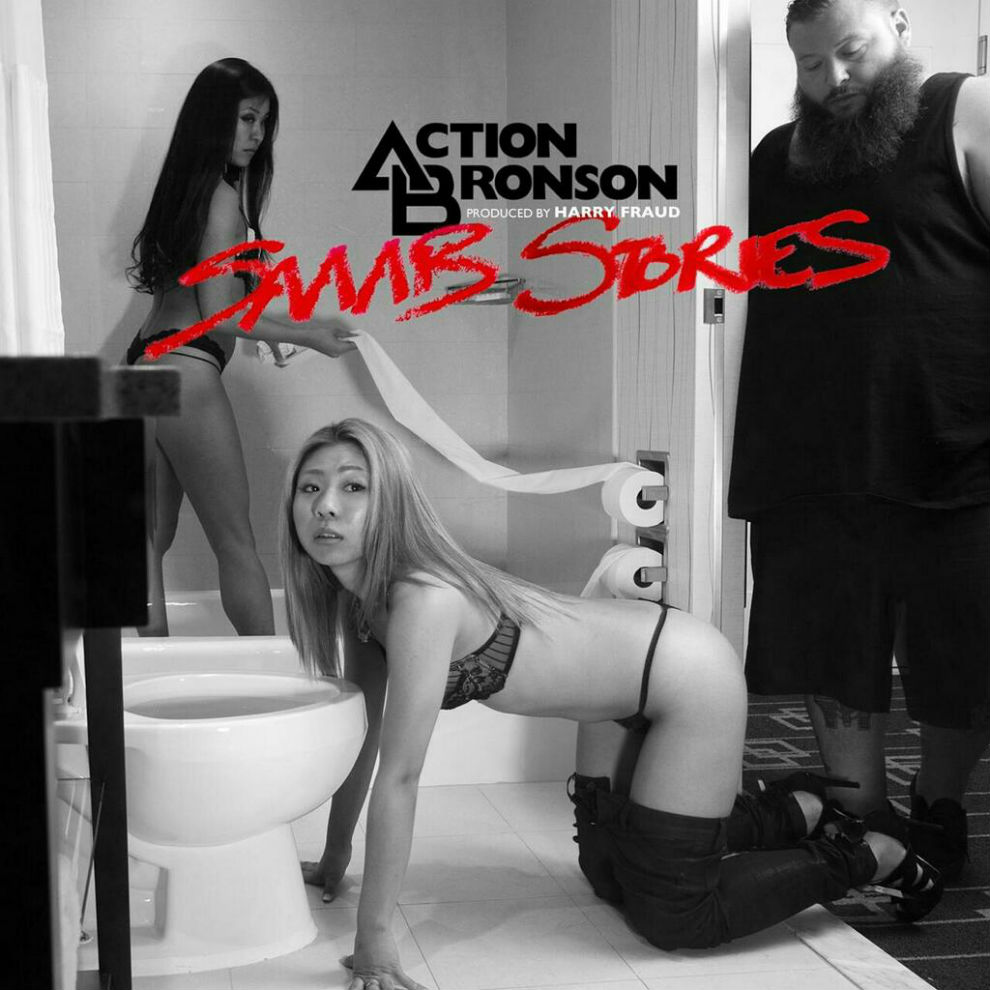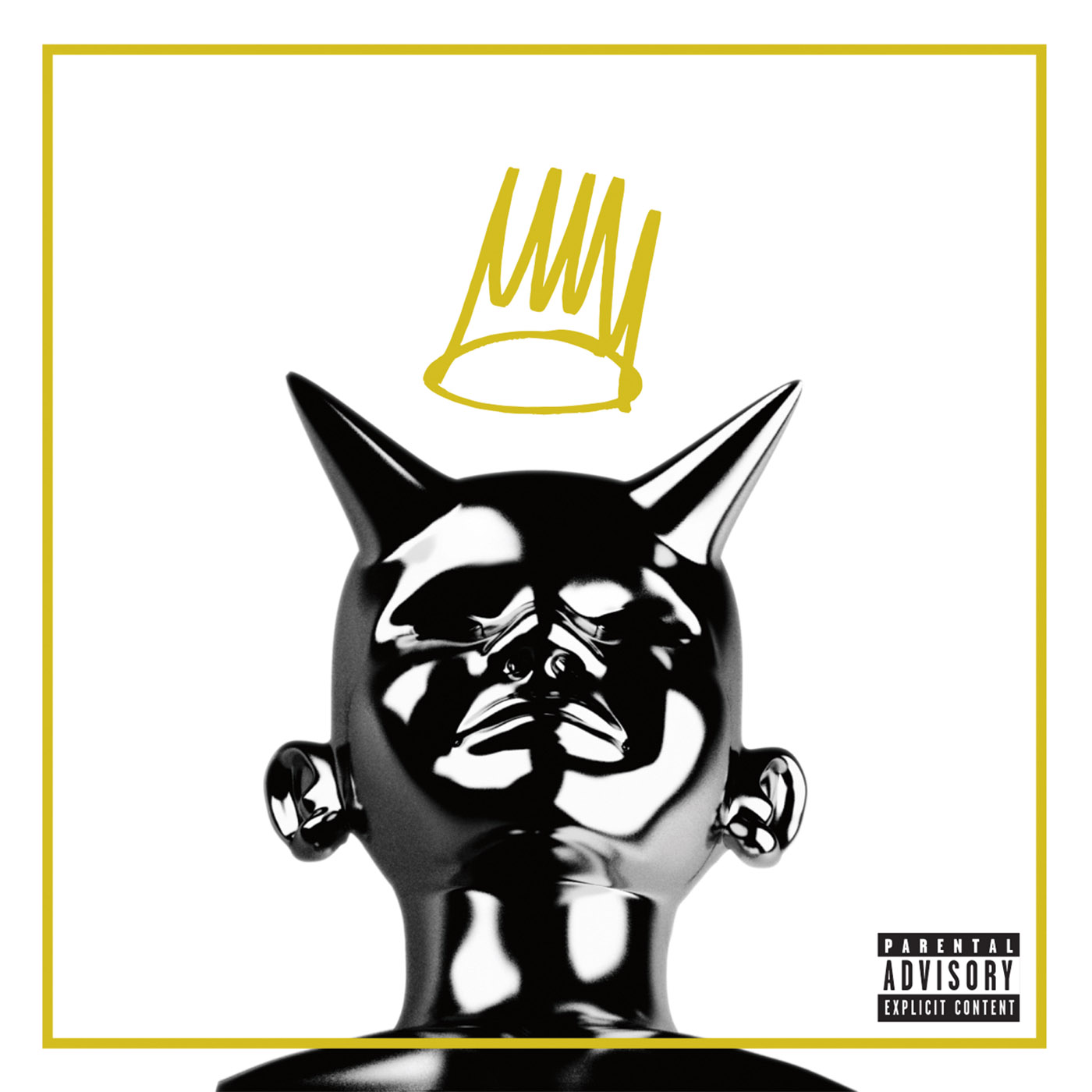AUX Top 10: June 2013
by AUX staff
July 2, 2013
Each month at AUX, our specialists in punk, metal, indie, hip hop, electronic, and pop vouch for their favourite releases of the month and have it out behind the scenes to bring you a trim, alphabetical, genre-representational list of the Top 10 Albums of the Month.
Each month at AUX, our specialists in punk, metal, indie, hip hop, electronic, and pop vouch for their favourite releases of the month and have it out behind the scenes to bring you a trim, alphabetical, genre-representational list of the Top 10 Albums of the Month. Such nice friends, hey?
Here were our favourite releases from the last month.
By: Marsha Casselman, Chayne Japal, Tyler Munro, Mark Teo, Nicole Villeneuve, and Aaron Zorgel

Action Bronson
Saaab Stories produced by Harry Fraud
(Atlantic/Vice)
Action Bronson, a.k.a. Bam Bam Bigleow, a.k.a. Ill Prosciutto, a.k.a The Symbol, a.k.a. Bronsolino is back, and this time he brought along fellow New Yorker, the baron of the boom-bap, the sultan of the sampler, Mr. Harry Fraud. Saaab Stories isn’t necessarily Bronson at his best, but he’s definitely at his most palatable. On “Strictly 4 My Jeeps,” “No Time,” and “Alligator,” Action crafts three of his catchiest hooks to date, and Saab Stories boasts features from Wiz Khalifa and Raekwon, two crucial co-signs that could introduce Bam Bam to a wider audience. There’s no shortage of Action’s signature gourmand food reference on this seven song EP (“Baby clams from Montauk, mix it up with the linguistics”), but we lose a bit of his storytelling panache in favour of easy punchlines and outrageous superhero imagery (“Do a triple back flip into the red coupe”). Fraud’s beats are on point, as always, straddling the classic New York sound and the triplet-trap sound that’s dominating hip-hop today. (AZ)

J. Cole
Born Sinner
(Roc Nation/Sony)
There are competitive rappers and then there’s J. Cole. His second album, Born Sinner, and its preceding mixtape series, Truly Yours, shook the sports-themed titles of his earlier efforts but the spirit of competition returned when Cole bumped his release date up a week to have his sophomore drop the same day as Yeezus. In retrospect, this could have been done to make room for Jay-Z’s Samsung thing but the statement was already made. Unlike his debut, this is an album that Cole can stand behind confidently and no matter how it does, he’ll be proud, as he should be. There are no guest verses and with very little help in the production department, this record will trigger recollections of the original, lofty expectations for the pride of Fayetteville, North Carolina. (CJ)

The Courtneys
s/t
(Hockey Dad Records)
If you like fun and friendship and grunge and pop and summer and maybe Wavves or defunt ‘90s Vancouver cuddlecore queens Cub, you will love the Courtneys. The BC three-piece have a sound definitely not underrepresented in the past half-decade—sunny, simple, slacker guitar pop—but their earnesty, confidence, and intuitive, understated melodies paired with their straightforward lyrics make it a standout. When they’re not advising you to “chill out” (“90210”), they can commiserate while also doling out sound career and life advice (“Insufficient Funds”), so basically the The Courtneys are the best friends we all need. (NV)

Crosss
Obsidian Spectre
(Telephone Explosion)
Here’s a trend we can back: The druidic takeover of pop. Not that Crosss are pop—not even close—but, unlike its early-game billing, Obsidian Spectre doesn’t fit neatly into extreme-music classification, either. Built on grunge-era guitars and demented bluesy dirge, Crosss aren’t crushing; hypnotic would be a better descriptor. Indeed, instead of building around crushing grooves, Obsidian Spectre deliberately plods, driven by near-instructional chanting that’d sounds less like lyrics, more like ritualistic spell-casting. Most surprising, however, are Crosss’s occasional forays into jitter-pop—no surprise, considering the off-kilter Halifax scene some its members called home, including Heaven For Real drummer Nathan Doucet—which makes Obsidian Spectre wonderfully digestible, even on first listen: “Sacred Cow,” “Smoke,” and “The Witching Hour” all possess a, well, possessed melodicism that haunts long after the LP’s concluded. (MT)

Deafheaven
Sunbather
(Deathwish)
From the immediate tension in “Dream House,” it’s clear that Deafheaven have stumbled onto something special with Sunbather. While this is the first time since Wolves in the Throne Room’s Diadem of 12 Stars that an atmospheric black metal band has separated itself from their niche, Sunbather excels because it throws the genre’s usual coldness to the wayside. The album defines itself with the usual blackgaze tropes—tremolo blasts, looming song structures and piercing shrieks—but excels with a dynamic emotional weight rarely seen in the genre, feeling at times as though it’s smashing through the genre at its most orthodox with an inkling of ‘90s nostalgia. It’s not an allusion black metal purists will fawn over, but then they’ve already stopped paying attention, leaving the rest of us to enjoy Sunbather for what it is: a revelation. (TM)

Disclosure
Settle
(Cherrytree/Interscope)
Brothers Guy and Howard Lawrence first caught our ear a year ago with their remix of Jessie Ware’s “Running,” and ever since a steady stream of pop-friendly deep house singles has transformed them into post-dubstep ambassadors. On Settle, the Lawrence brothers blend saccharine pop hooks with Chicago house influenced rhythms, and the production intricacies of future garage innovators like Burial and SBTRKT. Settle has already debuted at #1 in the UK, and produced three Top 40 singles, and with radio ready collaborations with Jessie Ware and Jamie Woon in the chamber, Disclosure should have even more chart success as their impact inevitably travels to North America. (AZ)

Jon Hopkins
Immunity
(Domino)
Jon Hopkins—former keyboardist for Imogen Heap, film score producer, collaborator with Brian Eno and Coldplay —has made a new name for himself with his fourth album of experimental techno, lauded by critics across the board. The concept is somewhat based on a night out to a party—the raging, thick-beated climax, the introspective comedown. Throughout the album, the intermittent glitchy, static-like textures resemble an attempt to use an old radio to tune into the latest techno broadcast, but stumbling across a secret channel, one of beautiful ambiance and nature. Immunity rests in limbo between rave and heaven-like states, which can be frustrating for some. But for life-long techno-heads, there’s really no difference between the two. (MC)

Smith Westerns
Soft Will
(Mom + Pop)
Since departing their bratty—but incredible—power-pop phase, Chicago’s Smith Westerns have developed a delightfully obstinate streak. With 2011’s Dye It Blonde, they evolved into one of those stubbornly oblivious bands who sing about romance and youth and opulence; it was almost as if they’d never heard the words “subprime mortgage crisis.” Soft Will feels more grown-up, both lyrically and compositionally: Existential cracks in the band’s bliss are starting to show, evident right from its opening track, where the Omori bros deadpan, “You don’t look like you used to be; you don’t look like you do on TV” Of course, the glammed-up, foie gras-rich decadence isn’t gone—guitars are still played like harps, reverbed-drenched, all-in choruses still drive the songs, and achingly gorgeous piano breakdowns have been added—but the band has learned restraint: While Dye It Blonde savoured its most luxurious chord progressions (often ad nauseaum), Soft Will uses its still-unforgettable hooks with economy and purpose. (MT)

Wale
The Gifted
(MMG/Warner)
After his Jerry Seinfeld-themed Mixtape About Nothing, things seemed to get more and more complicated for Wale. He walked the fine line between conscious and crude, punchline rapper and songwriter, artist and moneymaker, trendsetter and biter and, in a way, that was his shtick. But this indecisiveness, while entertaining, caused him to lose command of his first two albums as J. Cole and Meek Mill respectively hijacked the eclectic records with single verses. On The Gifted, Wale has finally settled on his identity; returning to the smart, down-to-earth, and emotive cuts that he grabbed everyone’s attention with in the first place. Although he still gets the best out of his guests, his focus on this release allows him to remain the master of his domain. (CJ)

Kanye West
Yeezus
(Def Jam)
Kanye West’s discography charts a series of personal transformations: he evolved from dropout to graduate, with a trio of scholarly-themed album titles between 2004 and 2007; he went from heartbroken to twisted fantasizer, coping with the loss of his mother via erratic public behaviour, followed by the backhanded apology that is My Beautiful Dark Twisted Fantasy; now, with the release of Yeezus, we’re seeing him go from a deity to a straight-up motherfucking nucleus in his own mind. This time around, Kanye takes a deliberate step back from the grandiose soundscapes on Dark Fantasy, and channels a primal energy that was once reserved for the G.O.O.D. lord’s paparazzi-induced meltdowns exclusively. Jagged synthwork, dancehall samples, some of his most aggressive vocals (in terms of both lyrics and delivery), and a distinct Chicago presence (Chief Keef, King Louie, and hat-tips to the rising drill movement) all characterize the sound of Yeezus, but the real brilliance lies in the album’s most uncomfortable moments, where Kanye screeches on top of distorted beats, and finally musters up the gall to vocalize what he’s been thinking all along: he is a God, and he is in control of every single aspect of his creation. (AZ)
Tags: Music, Lists, News, action bronson, AUX Magazine, Crosss, Deafheaven, Disclosure, J Cole, jon hopkins, Kanye West, Yeezus





